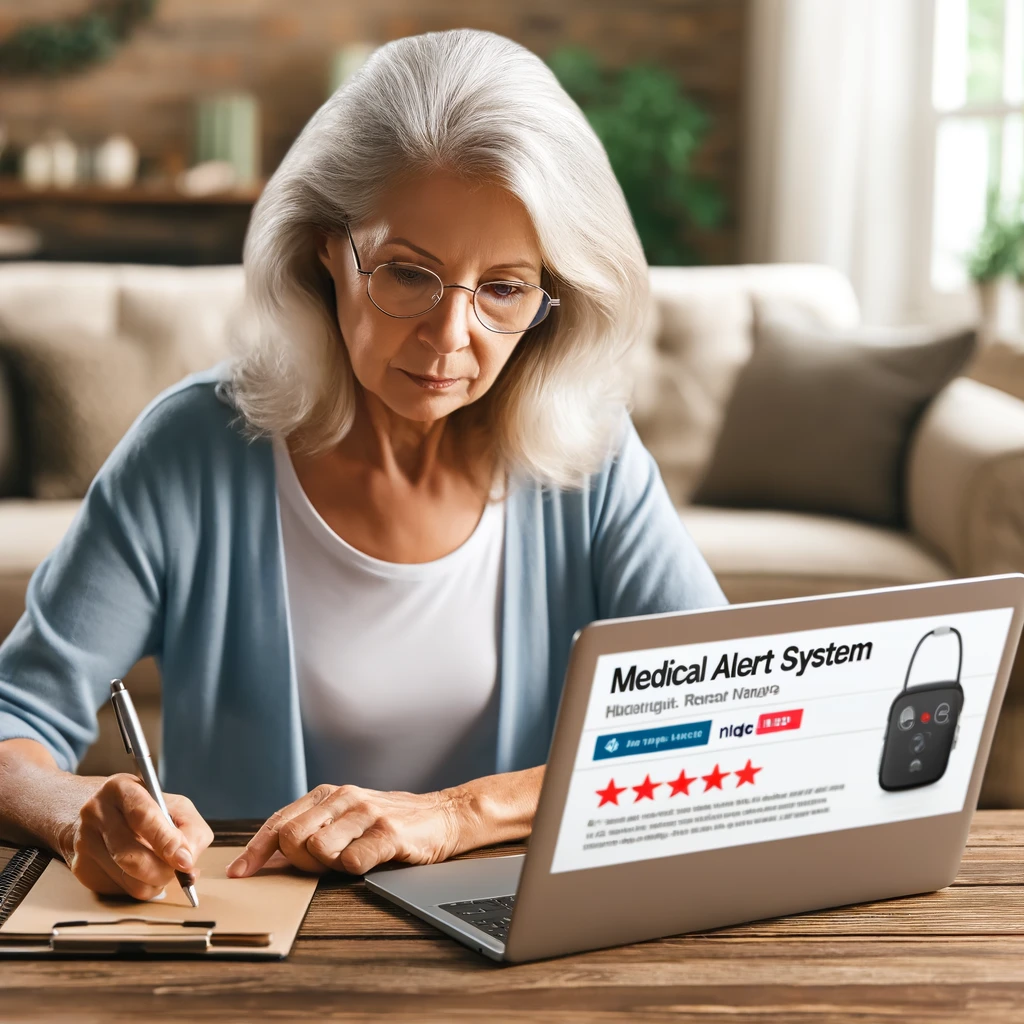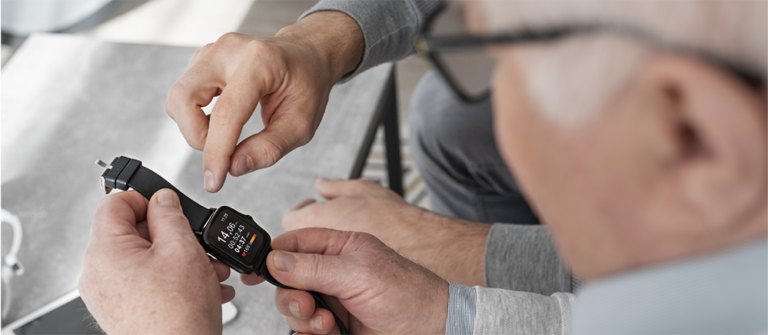
When it comes to medical alert systems, firsthand user experiences offer invaluable insights that go beyond mere specifications and advertisements. This blog delves into what users say on platforms like Reddit, official brand sites, Trustpilot, and ConsumerAffairs, bringing you genuine feedback from those who’ve interacted with these crucial safety devices.
Genuine User Reviews: Identifying Trusted Sources and Authentic Feedback
When evaluating medical alert systems, it’s crucial to consult reliable sources for user feedback to ensure genuine and informative reviews. Distinguishing honest reviews from paid or biased ones is essential because genuine reviews provide an unbiased snapshot of a product’s performance and customer satisfaction. In contrast, paid reviews might skew perceptions by emphasizing only the positive aspects.
Why Trusted Sources Matter:
- Transparency: Trusted platforms have mechanisms to prevent fake reviews, ensuring the feedback you read is from actual users.
- Accountability: Platforms that verify purchases and user experiences discourage deceptive practices and encourage honest reviews.
- Consumer Confidence: Knowing which reviews to trust helps consumers make better-informed decisions based on accurate information.
Trusted Platforms for Genuine Reviews:
- Official Brand Websites: Brands often showcase customer testimonials that can provide insights into the real-world use of their products. These are useful for seeing how companies curate positive feedback, but they might not always present the whole picture.
- Trustpilot and ConsumerAffairs: These platforms require verification of reviews, making them reliable sources for authentic user feedback. For example, Medical Guardian’s Trustpilot page offers a broad range of user experiences detailing satisfaction and service issues.
- Reddit and Online Forums: Places like Reddit allow unfiltered discussion about medical alert systems. The candid nature of these discussions is valuable for understanding the nuanced experiences of users, including both the positives and the challenges they face.
Recognizing Authentic Reviews:
- Detail and Specificity: Real reviews often contain specific information about the user’s experience rather than generic praise or unfounded criticisms.
- Consistency Across Platforms: Authentic reviews generally reflect a consistent theme across different review sites and forums.
- Verified Purchase Labels: Many review sites mark reviews from verified purchases, adding an extra layer of trust to those opinions.
Understanding the difference between paid and honest reviews is crucial for making an informed decision about purchasing a medical alert system. By focusing on trusted sources and learning to identify genuine feedback, consumers can navigate the market more effectively, leading to better purchasing choices that suit their specific needs.
Challenges and Solutions: User Perspectives on Medical Alert Systems
While medical alert systems are designed to enhance safety and security, users often encounter specific challenges that affect their overall satisfaction and effectiveness. Insights from Reddit and other online forums reveal common issues and the creative solutions users have devised to address them.
Common Challenges and Solutions
Accessibility and Compliance
- Challenge: Many users report problems with the accessibility of devices, particularly elderly users who may forget to wear or find them uncomfortable.
- User Example: User Alanamil mentioned the difficulty of ensuring her father wore his alert button, leading her to attach extra buttons around the house, such as in the bathroom and kitchen, and even on his walker. This story reflects a typical challenge where users must adapt the system to ensure it is always within reach.
Comment
byu/emjoyfully from discussion
inAgingParents
- Solution: To address this, families and caregivers can place multiple wearable or wall-mounted buttons throughout the home to ensure one is always accessible, regardless of where the user is. Creative placement, like looping a necklace through a kitchen drawer or placing a button on the floor near favorite sitting areas, can help ensure the alert system’s effectiveness.
Device Sensitivity and False Alarms
- Challenge: Overly sensitive devices can lead to false alarms, which can be both annoying and desensitizing to real emergencies.
- User Example:
- Solution: Users can contact customer service to adjust the sensitivity settings of their devices. Some systems allow for customizable sensitivity to reduce false alarms. In some cases, choosing different models or brands with better reviews on sensitivity can also be a solution.
Technical and Operational Issues
- Challenge: Technical failures and operational glitches can compromise the reliability of medical alert systems.
- Users Insight: In discussions, users often cite issues like battery life and signal range limitations, which can be critical in emergencies.
- Solution: Regular testing and maintenance of the equipment are vital. Users should perform monthly tests to ensure everything functions correctly and the battery levels are satisfactory. Upgrading to models known for their reliability and having backup systems in place can also mitigate these risks.
Education and Familiarization
- Challenge: A lack of familiarity with how to use the systems effectively is another significant challenge, particularly for new users who may not be tech-savvy.
- Community Solution: Engaging in detailed walkthroughs with the device provider at the start of service and revisiting these tutorials regularly can increase user comfort and proficiency with the systems. Online forums and support groups can offer advice and tips on navigating these challenges.
The challenges associated with medical alert systems are non-trivial but can often be mitigated with thoughtful solutions and adjustments. By understanding and addressing these common issues, users can enhance the functionality and reliability of their medical alert systems, ensuring they provide the necessary safety and peace of mind.
User Satisfaction and Ratings: Navigating Through Feedback
User satisfaction and ratings on platforms such as Trustpilot, ConsumerAffairs, and official brand websites provide essential insights into the effectiveness and reliability of medical alert systems. These platforms offer a wealth of user-generated data that can help new users make informed decisions.
Importance of Review Platforms
- Trustpilot and ConsumerAffairs: These sites are instrumental for prospective buyers. They aggregate reviews that highlight a range of experiences, from exceptional service to potential areas of improvement within medical alert systems. For instance, Trustpilot’s Medical Guardian page offers a spectrum of user experiences that give insight into the product’s reliability and customer service effectiveness. ConsumerAffairs provides a similar compilation of reviews and includes an overall satisfaction rating based on user feedback, which can be accessed here.
- Verified Reviews: Both platforms ensure that reviews are verified, which means they confirm that feedback comes from actual users who have interacted with the company. This process helps filter out fake reviews and ensures genuine and relevant input.
Comprehensive Guides on Med-Alerts.com
In addition to these external review platforms, our site, Med-Alerts.com, offers detailed guides and reviews of various medical alert brands. These resources are designed to help users find the best system for their needs.
Guides Section: Our guides section scores brands on numerous parameters, including honest user feedback, to provide a holistic view of each product.
This approach helps users weigh the pros and cons of each system based on comprehensive criteria, which include:
- Ease of Use: How user-friendly is the device?
- Features: Does the system offer fall detection, GPS tracking, and other essential features?
- Customer Support: How effective and accessible is the customer service?
- Cost-Effectiveness: Are the benefits worth the price?
Real User Insights
Our commitment to transparency and user-driven content ensures that our readers receive up-to-date and accurate information to make the best decisions for their safety and well-being.
Final Thoughts
When choosing a medical alert system, it’s crucial to consider a wide range of user opinions and expert analyses. Platforms like Trustpilot and ConsumerAffairs provide valuable feedback that, combined with comprehensive reviews from sites like Med-Alerts.com, can empower consumers to choose the most reliable and suitable medical alert system.
Whether you’re a new user or looking to switch systems, visiting our guides section will provide detailed comparisons and ratings to aid your decision-making process.








